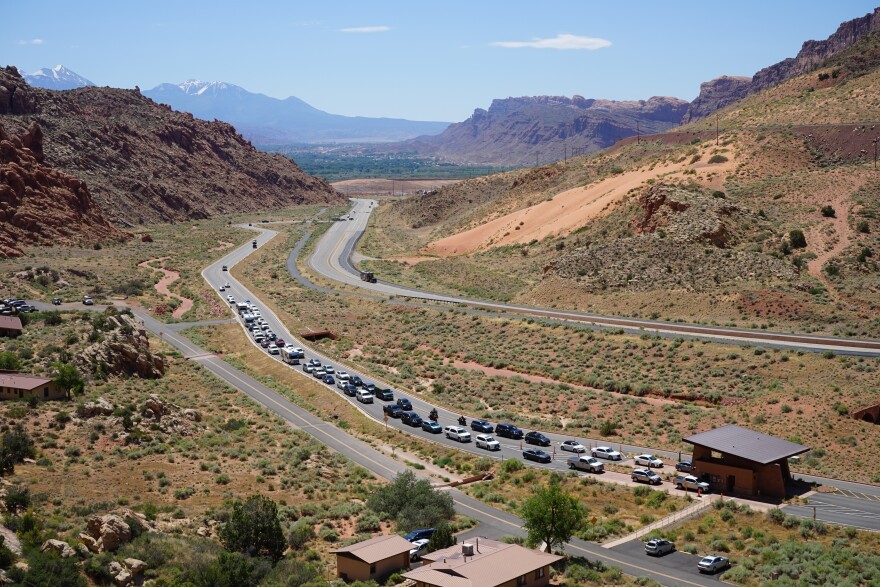The Interior Department has announced it’s temporarily waiving entrance fees for recreation areas, national monuments and national parks. Secretary David Bernhardt said he wanted to make it easier for people to recreate on public lands.
The agency is urging all visitors to follow CDC guidelines by washing their hands and maintaining a distance of 6 feet from other people.
But critics of the move say it could be a recipe for disaster.
“Our national parks have seen record visitation. Our national parks are often described as being loved to death. The idea that you can be in a national park and be away from everyone is a bit of a misnomer,” said Jayson O’Neill of the nonprofit environmental group Western Values Project.
In eastern Utah, Bernhardt’s message contradicts a Moab hospital’s plea for tourists to stay away. “The best thing we could all do is stay at home,” said Dylan Cole, Moab Regional Hospital’s chief medical officer. “I don’t think this is the time to encourage people to take cross-country road trips.”
Moab sits between Arches and Canyonlands national parks.
On Tuesday, the Southeast Utah Health Department effectively shut down the tourism industry by banning overnight lodging — including all camping on public and private lands — in Grand, Carbon and Emery counties.
“There is grave concern, not only among groups, but also local communities about what this new directive would mean in regards to a surge of tourism,” O’Neill said.
This story was produced by the Mountain West News Bureau, a collaboration between Wyoming Public Media, Boise State Public Radio in Idaho, KUER in Salt Lake City, KUNR in Nevada, the O’Connor Center for the Rocky Mountain West in Montana, and KRCC and KUNC in Colorado. Follow Nate Hegyi on Twitter @natehegyi.
Copyright 2020 KUER 90.1. To see more, visit . 9(MDAxNDQ2NDAxMDEyNzU2NzM2ODA3ZGI1ZA001))




